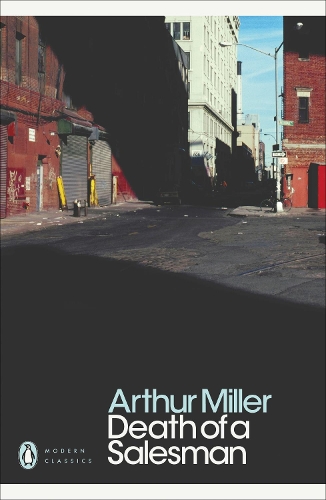
Death of a Salesman: Certain Private Conversations in Two Acts and a Requiem
(Paperback)
Available Formats
Paperback
Published: 11th August 2022
Paperback, 2nd edition
Published: 19th October 2017
Paperback
Published: 1st July 2000
Publishing Details
Death of a Salesman: Certain Private Conversations in Two Acts and a Requiem
By (Author) Arthur Miller
Penguin Books Ltd
Penguin Classics
1st July 2000
30th March 2000
United Kingdom
Classifications
General
Non Fiction
812.52
Physical Properties
Paperback
128
Width 130mm, Height 199mm, Spine 8mm
102g
Description
Arthur Miller's extraordinary masterpiece, Death of a Salesman changed the course of modern theatre, and has lost none of its power as an examination of American life. In the spring of 1948 Arthur Miller retreated to a log cabin in Connecticut with the first two lines of a new play already fixed in his mind. He emerged six weeks later with the final script of Death of a Salesman - a painful examination of American life and consumerism. Opening on Broadway the following year, Miller's extraordinary masterpiece changed the course of modern theatre. In creating Willy Loman, his destructively insecure anti-hero, Miller himself defined his aim as being 'to set forth what happens when a man does not have a grip on the forces of life.'
Reviews
"By common consent, this is one of the finest dramas in the whole range of the American theater." Brooks Atkinson, "The New York Times"
"So simple, central, and terrible that the run of playwrights would neither care nor dare to attempt it." "Time""
Author Bio
American dramatist Arthur Miller was born in New York City in 1915. In 1938 Miller won awards for his comedy The Grass Still Grows. His major achievement was Death of a Salesman, which won the 1949 Pulitzer Prize for drama and the 1949 New York Drama Critics' Circle Award. The Crucible was aimed at the widespread congressional investigation of subversive activities in the US; the drama won the 1953 Tony Award. Miller's autobiography, Timebends- A Life was published in 1987.
